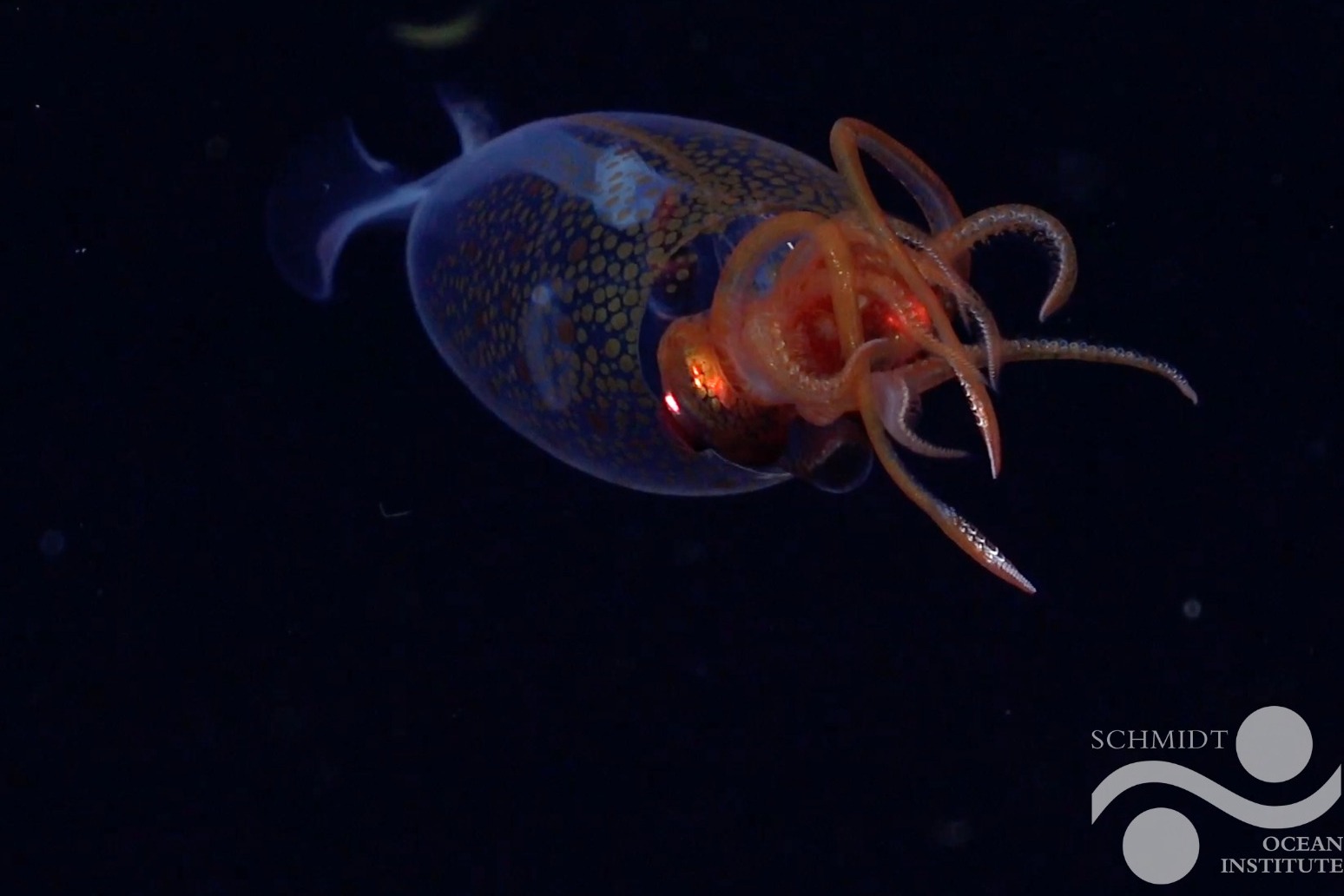-
 play_arrow
play_arrow
Kl 1 Radio Local radio for west Norfolk
-
 play_arrow
play_arrow
KL DISCO KL Disco Playing Disco Music from the 70's onwards.24/7
-
 play_arrow
play_arrow
KL COUNTRY KL COUNTRY Playing New and Classic Country Music 24/7
-
 play_arrow
play_arrow
KL ROX KL ROX The best of New and Classic Rock.24/7
-
 play_arrow
play_arrow
KL SUMMER Summer Vibes 24/7 from KL1 Radio across West Norfolk
-
 play_arrow
play_arrow
KL CLASSICAL Your Symphony Starts Here
-
 play_arrow
play_arrow
KL CHILL Just Chill!
-
 play_arrow
play_arrow
KL POP The Best POP Hits all day Long!
-
 play_arrow
play_arrow
KL XTRA KL XTRA
music_note

A colossal squid has been filmed alive in the wild for the first time, 100 years after the species was discovered.
The rare footage was captured on March 9 by Schmidt Ocean Institute’s remotely operated vehicle SuBastian, at a depth of 600 metres off the South Sandwich Islands in the Atlantic Ocean.
The juvenile squid, around 30 centimetres long, is the first confirmed sighting of a living Mesonychoteuthis hamiltoni in its natural habitat.
Colossal squid are thought to grow up to seven metres and weigh as much as 500kg, making them the world’s heaviest invertebrate.
Until now they have been seen only dead – washed up or in the stomachs of predators such as whales.
“It’s exciting to see the first in situ footage of a juvenile colossal and humbling to think that they have no idea that humans exist,” said Dr Kat Bolstad, who helped verify the footage.
The discovery came during a 35-day ocean census expedition – part of a global project to find and record new marine life.
The mission involved Schmidt Ocean Institute, the Nippon Foundation–Nekton Ocean Census, and research teams from the UK and Germany.
Experts confirmed the juvenile squid by its transparent body and arm hooks, which help distinguish it from similar species such as the glacial glass squid (Galiteuthis glacialis).
The glacial glass squid was also filmed alive for the first time on a previous Schmidt Ocean Institute expedition in January, in the Bellingshausen Sea off Antarctica.
“The first sighting of two different squids on back-to-back expeditions is remarkable,” said the Institute’s executive director, Dr Jyotika Virmani.
“It shows how little we’ve seen of life in the Southern Ocean.”
To date, the Institute’s ROV SuBastian has recorded the first confirmed footage of at least four deep-sea squid species, with another still awaiting identification.
“These unforgettable moments remind us how much of the ocean remains unexplored,” Dr Virmani added.
Show less
Published: by Radio NewsHub

Similar posts
Upcoming shows

Chris Fisher – KL1 Mornings
10:00 am - 1:00 pm

Chris Osler – Friday Afternoon Show
1:00 pm - 4:00 pm

Richard Dix – KL1 Drive
4:00 pm - 7:00 pm

emoviebox
7:00 pm - 8:00 pm

Richard Tree – Friday Folk
8:00 pm - 9:00 pm
Message Us
Copyright The Mediasite UK - 2025








